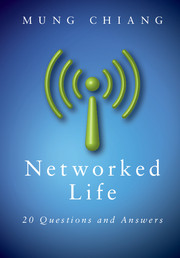ABSTRACT
Drawing on ten years’ experience as a journal editor, the author of this chapter looks at the key drivers for change in the journal market-place: the drive for profit by the large commercials and the impact of rapidly developing technology which is enabling different access and publishing models to be explored. These drivers are leading to changes in the editorial function, in particular the role of peer reviewing moving from pre- to postpublication review. The exaggeration of the added value contributed by publishers may be a matter of debate. The very significant impact of Open Access (OA) is assessed and some predictions are made, including the likely demise of the Big Deal, at least in its present form, because of the impact of OA. The chapter concludes by arguing that publishers have contributed greatly to increasing access to the academic literature but are now acting as a brake on further developments through their exploitation of copyright law and digital rights management constraints. All these factors will see the role of the journal editor change dramatically in the next five to ten years, more quickly in the fields of science, technology and medicine, and more slowly in the humanities and social sciences.
Introduction
‘As long as the journal remains important for the achievement of research funding and tenure, it will endure as a key component of scholarly communication’; and, as David Worlock notes on his blog: ‘the science knowledge market is in a ferment’. Changes taking place today are subverting the business models of journals and threatening the stability of the tenure system; the role of the journal editor is bound up with these changes.
The journals industry is very large; globally, there are about 225,000 active journals, of which 63,000 are academic journals, with 25,000 seen as core titles; these estimates are discussed by Tenopir and King. Changing the course of an industry of this size, rather like turning an oil tanker round, is a slow and complex process, which makes prediction difficult. However, some emerging trends will dramatically affect the roles of both journals and their editors. Traditionally, the key functions of a journal editor are to provide the publisher with a regular supply of articles, usually in a particular discipline, and of a satisfactory quality.
